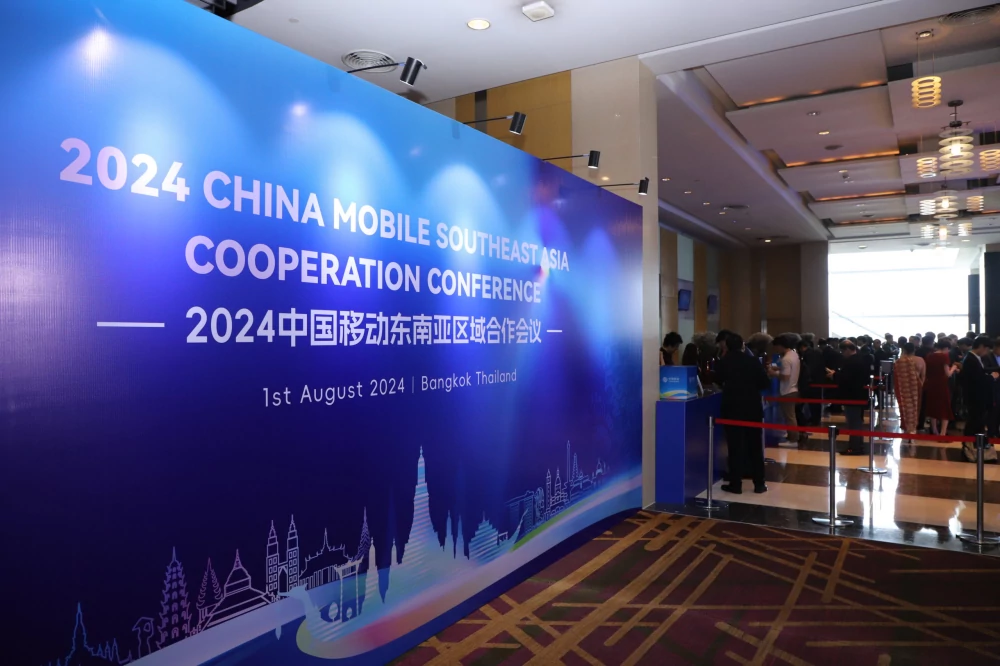CEO Suphachai Chearavanont supports collaboration in AI, cloud, and human capital as key business drivers, creating opportunities for digital economy growth in the ASEAN region
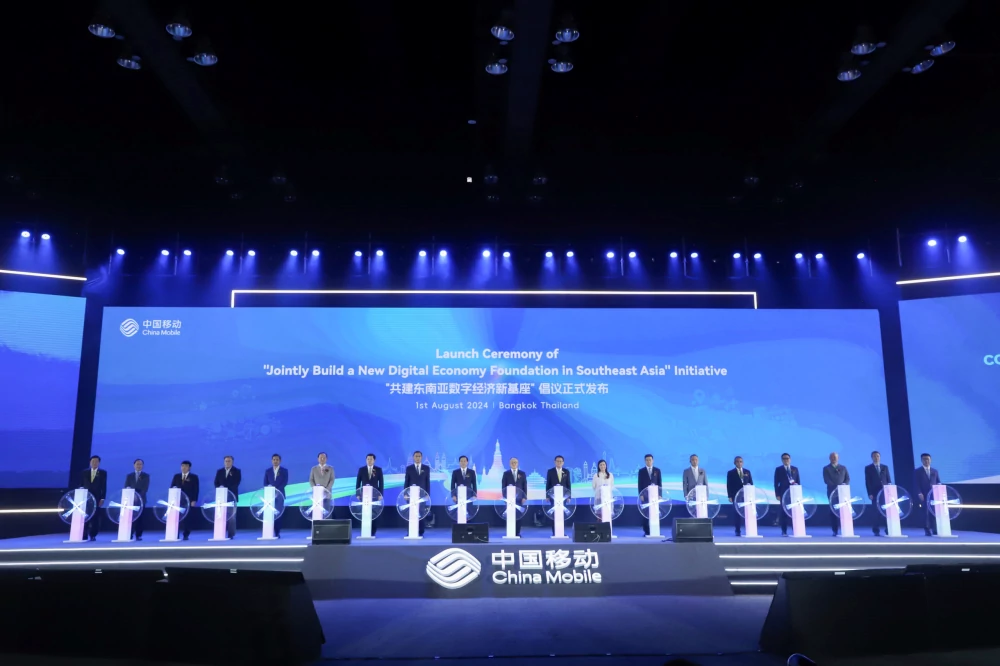
August 1, 2024 – Khun Suphachai Chearavanont, CEO of Charoen Pokphand Group (CP), presented his vision on “Opportunities and Challenges for Multinational Enterprises in the Digital Economy Era” at the 2024 China Mobile Southeast Asia Regional Cooperation Conference: “Connecting Through Data, Innovating the Future,” organized by China Mobile. During his speech, Khun Suphachai highlighted that the world is entering the 5.0 economic era, driven by AI and digital connectivity, with a growing emphasis on big data. This presents a business opportunity to leverage advanced AI technology to better understand customers and enhance business efficiency, helping companies stay competitive.
He noted that multinational enterprises are currently facing three major challenges, referred to as the “3Ds”:
- Deglobalization – The global political landscape is shifting towards a multipolar world, with countries enacting various import laws and regulations, forcing businesses to adapt.
- Digitalization – As the world transitions into the digital age, investment in AI and data has become crucial, as these tools are now key in many industries.
- Decarbonization – Reducing carbon emissions is imperative, with all organizations needing to contribute to preventing the climate crisis and achieving net-zero greenhouse gas emissions by 2050.
The CP Group has already implemented policies and is exploring solutions to these challenges, while also supporting regional investments in AI technology and clean energy.
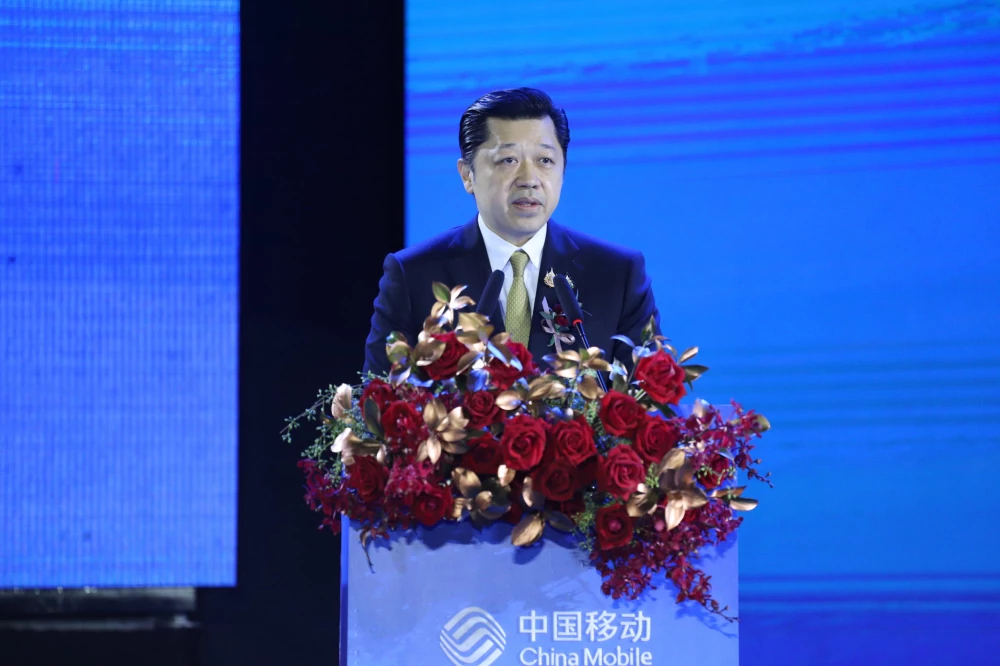
Mr. Suphachai believes that the digital economy in Southeast Asia has the potential to grow to a total value of $1 trillion by 2030, provided that the aforementioned challenges are overcome. Emphasis should be placed on "speed" and "scale." This collaboration meeting, led by China Mobile, a world leader in 5G deployment, is seen as a significant step towards fostering regional digital economic cooperation, especially in terms of collaboration in "AI and cloud." Moreover, the importance of data sovereignty is underscored, as every organization must have the autonomy to manage and control its own data. This is an area where regional cooperation should be strengthened. Simultaneously, there should be support for the establishment of giga data centers and employment within the system. However, CP Group, which operates in 22 countries with over 500,000 employees worldwide, is committed to integrating technological innovation and sustainable business practices across all its global business units. The Group is ready to collaborate with all sectors to drive both regional and global digital economies.
Furthermore, it's not only about building a digital economy within industries; we should also work towards bridging the digital divide. This includes adjusting strategies and business operations inclusively, promoting e-Government, and enabling people to access financial services. According to a report by Temasek, over 70% of the population in ASEAN does not have a bank account or access to basic financial services, and more than 60% of MSMEs (micro, small, and medium enterprises) are unable to obtain loans. This presents an opportunity for fintech businesses to reduce inequality in the region. An example of this is True Money, CP Group’s digital platform, which provides electronic payment and financial services to over 50 million users, allowing people in the country to access financial services in all areas.
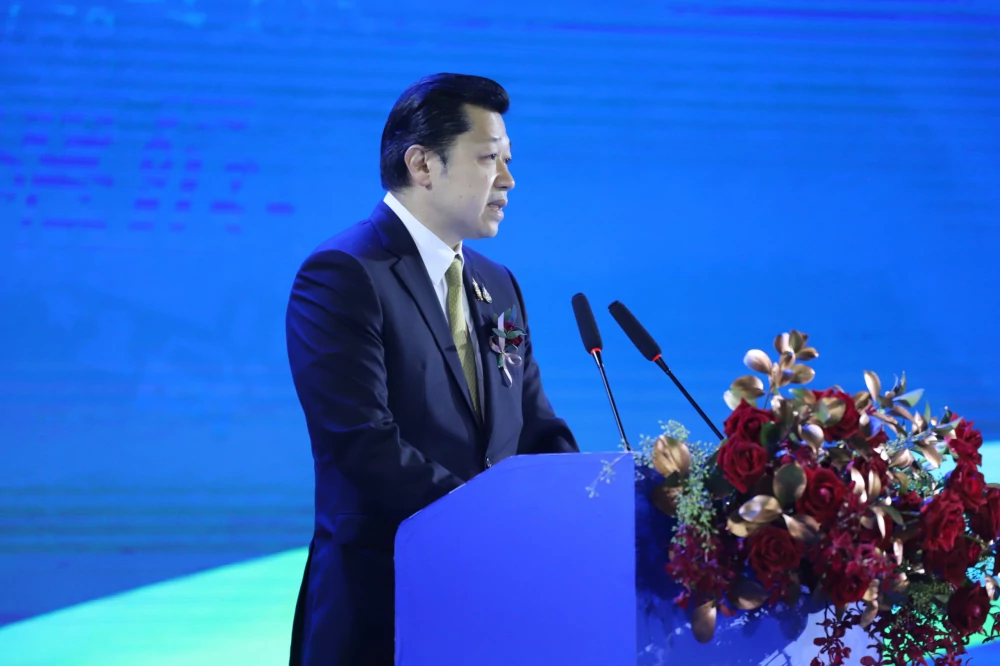
The CEO of CP Group emphasized that to build a digital economy in Southeast Asia, companies must prioritize the development of "human capital" to survive. He proposed the SI Transformation model, which stands for creating a Sustainable Society of Wisdom through educating the next generation. This approach focuses on developing AI skills while also instilling ethics and a mindset geared towards sustainability for our planet. As a result, the role of teachers must evolve from being instructors to becoming "coaches" or learning facilitators. They need to teach children to become "experimenters," encouraging them to adopt new mindsets and learn from experiences. This method fosters an entrepreneurial spirit, helping them adapt and thrive in today's challenging world.
"We need to sow the seeds of entrepreneurship in the next generation to prepare the future workforce to overcome challenges and seize opportunities in the 5.0 economy. At the same time, we must foster collaboration while finding ways to bridge the digital divide, ensuring sustainable growth that leaves no one behind," said Mr. Suphachai.
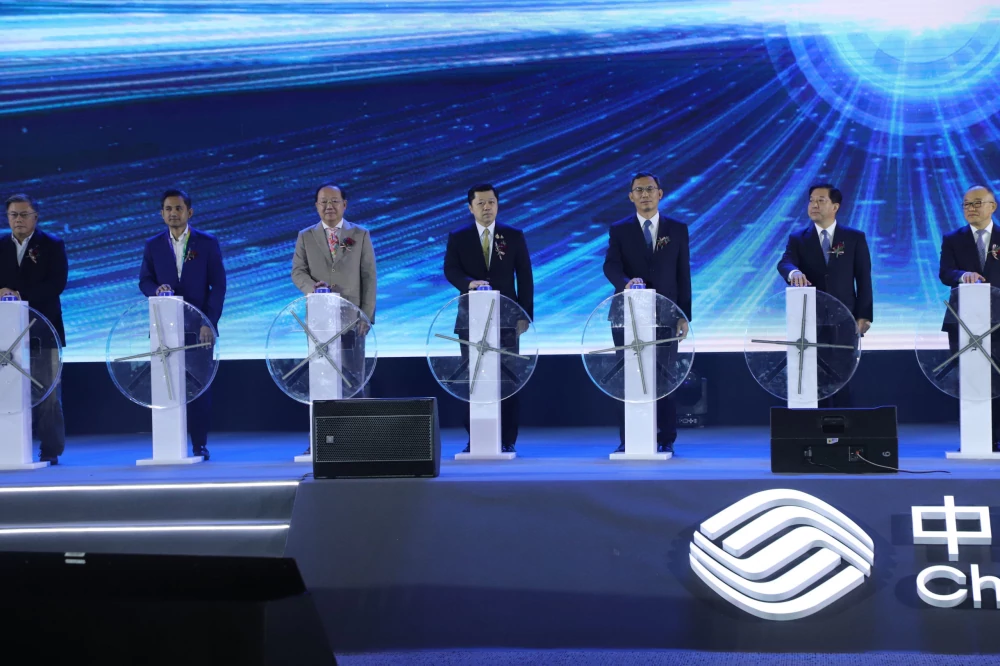
The 2024 China Mobile Southeast Asia Regional Cooperation Conference, themed “Connecting Through Data, Innovating the Future,” is a high-level summit that brings together multiple sectors to drive industries, both in the S-Curve and New S-Curve, using 5G, AI, and data technologies. The goal is to create a digital economy at the regional level in Southeast Asia. Key figures participating in the event include Mr. Prasert Chantararuangthong, Minister of Digital Economy and Society of Thailand; Mr. Han Zhiqiang, Ambassador of the People's Republic of China to Thailand; Ms. Teo Nie Ching , Deputy Minister of Communications and Multimedia of Malaysia; Mr. Keovisouk Solaphom, Assistant Minister of Technology and Communications of the Lao People's Democratic Republic; Dr. Gao Tongqing, Executive Vice President of China Mobile Communications Group Co., Ltd.; and Mr. Wang Hua, Chairman and CEO of China Mobile International Corporation, among others.
